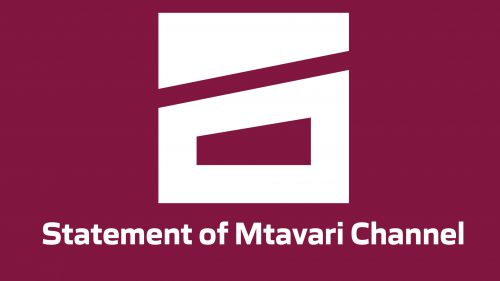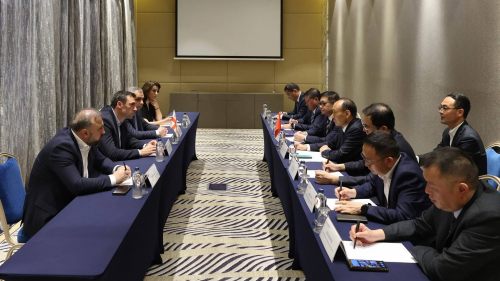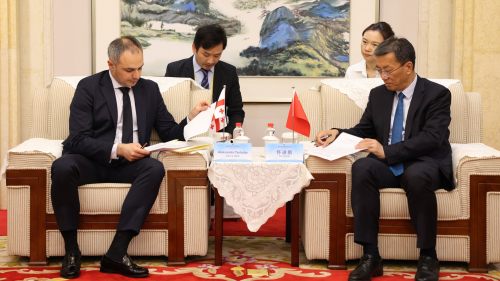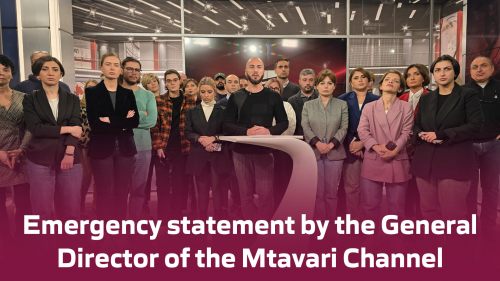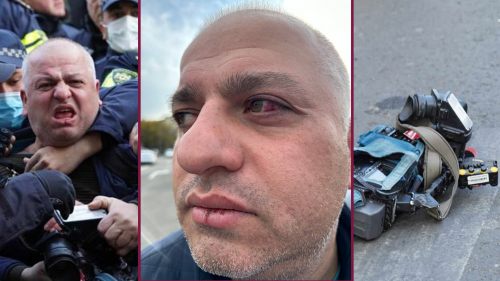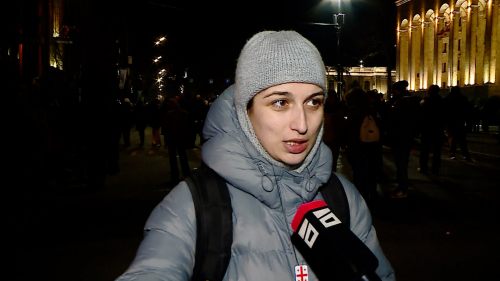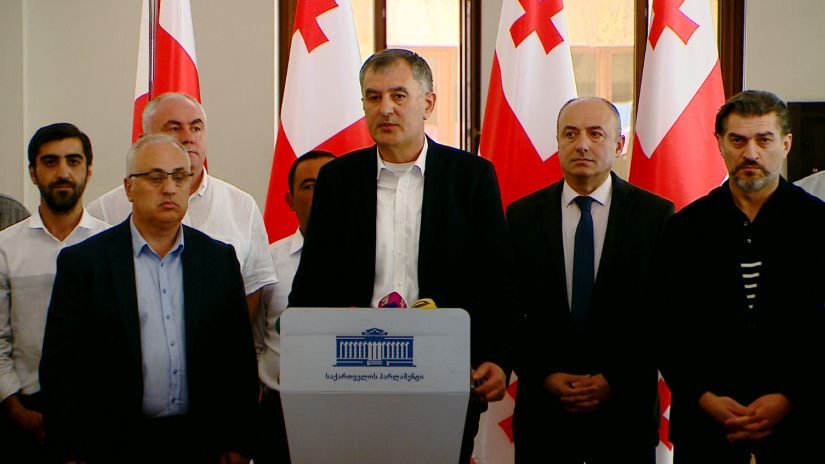
Former Dream MP Sozar Subari, writes to the American Ambassador Kelly Degnan, that her statement about a personal meeting with former Prime Minister Bidzina Ivanishvili was unconvincing.
According to his own statement, when the ambassador says that Bidzina Ivanishvili was not blackmailed, it is as meaningless as her statement that she has not met with the founder of the party in a long time.
Subari addresses Degnan with three questions:
- a) During her meeting with Bidzina Ivanishvili, did she express dissatisfaction with the government's position on the war?
- b) On the basis of this dissatisfaction did she demand that Bidzina Ivanishvili insistently return to politics;
- c) During the meeting, did she ask Bidzina Ivanishvili to impose sanctions against Russia?
See the statement in full:
As the public is aware, after the publication of Bidzina Ivanishvili's letter the American Ambassador Kelly Degnan had to change her position and say what we had no doubt about.
According to our logic, we were sure that the meeting between the American ambassador and Bidzina Ivanishvili had already taken place after the war had started, and we already had a clear answer to that question.
However, the recent vague statements by the American ambassador further strengthened our reasonable assumption that the mentioned meeting was aimed at getting a concrete result from Bidzina Ivanishvili. Earlier the U.S. Ambassador was evasive in giving a clear answer on the content of the meeting, but now she is talking about the content of the meeting in vague terms. It is clear to even a child that the meeting was not about "U.S.-Georgian strategic partnership and U.S. efforts to support Georgia's economic, security and democratic development.
Furthermore, the U.S. ambassador stated that it was a private meeting, which is completely unconvincing. When an American ambassador meets with a former prime minister for three hours, it cannot be considered a private meeting under any circumstances. Accordingly, the ambassador's claim of a "private meeting" further reinforces the well-founded suspicion that she has something to hide. This country is not covered in straw, and everyone is well aware that less than a month into the war, there will be no personal meeting at the ambassador's request.
Kelly Degnan also stated that she was not blackmailing Bidzina Ivanishvili. Personally, I have no doubt that the American ambassador did not directly demand Georgia's involvement in the war with Russia. It is an unwritten law of diplomacy that such a request has to be made indirectly. Therefore, when the ambassador says that Bidzina Ivanishvili has not been blackmailed, it is as meaningless as her own statement that she has not met with Bidzina Ivanishvili "for a long time".
To the ambassador, blackmailing Bidzina Ivanishvili could be as a matter of perspective as pressuring the court.. As the public will be informed, Kelly Degnan confirmed that Judge Chkhikvadze was summoned by the Embassy, that he was asked to report on a specific case on behalf of the Ambassador, and that he was not allowed to go to America and said that there was no pressure on the judge. Maybe she did not blackmail Bidzina Ivanishvili in the same way she did not put pressure on Judge Chkhikvadze.
Pressure on Bidzina Ivanishvili could be expressed in different ways. For example, if Kelly Degnan at her meeting with Bidzina Ivanishvili expressed her dissatisfaction with the government's stance on war and, referring to that dissatisfaction, insisted on Bidzina Ivanishvili returning to politics, everyone would agree that this was obvious blackmail. If we add to all this the fact that at the meeting Ambassador Bidzina Ivanishvili, for example, insisted on imposing sanctions against Russia, the logical chain of war-directed blackmail is already completely tied up.
Obviously, Bidzina Ivanishvili did not need direct blackmail from the ambassador. When Ambassador met with Ivanishvili, the latter was already under severe blackmail. By that time not only was his bank transfers suspended, but also the transfer of paintings from New York and London and the arrival of a helicopter from Germany, about which there were many articles in the international media. In such circumstances not blackmailing Bidzina Ivanishvili is as right as cancelling a visit to America for "routine reasons" for Judge Chkhikvadze.
Once again, diplomacy has its limits and the ambassador did not demand from Bidzina Ivanishvili to take part in the war in an open text, especially since the meeting probably took place in the space owned by Bidzina Ivanishvili. However, obviously, expressing dissatisfaction with the government's position on the war, demanding a return to politics and insisting on sanctions against Russia would be a sufficiently logical reason for Bidzina Ivanishvili to perceive the ambassador's speech as blackmail aimed at dragging Georgia into a war. This perception can be seen very clearly in Bidzina Ivanishvili's letter.
Therefore, I would like to ask Ms. Kelly Degnan the following questions:
- a) During her meeting with Bidzina Ivanishvili, did she express dissatisfaction with the government's position on the war?
- b) On the basis of this dissatisfaction did she demand that Bidzina Ivanishvili insistently return to politics;
- c) During the meeting, did she ask Bidzina Ivanishvili to impose sanctions against Russia?
The answer to these questions will give me and the Georgian public a clear picture of whether American Ambassador Bidzina Ivanishvili was trying to blackmail Georgia into going to war. If the American ambassador said all this to Bidzina Ivanishvili amid actual sanctions, it is absolutely irrefutable evidence of blackmail.
Finally, unless the American ambassador once again makes a speculative reprimand to Bidzina Ivanishvili for taking care of his finances, I will say that I am not defending Bidzina Ivanishvili's finances, but essentially I am interested in whether those finances are used for blackmail against the interests of the country.



